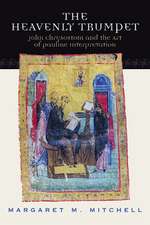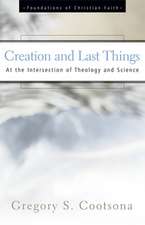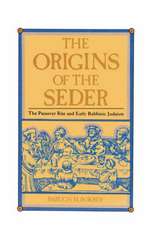Dark Night of the Soul
Autor Saint John of the Crossen Limba Engleză Paperback – 31 aug 2010
| Toate formatele și edițiile | Preț | Express |
|---|---|---|
| Paperback (6) | 67.41 lei 6-8 săpt. | |
| IMAGE – 31 dec 1958 | 75.68 lei 3-5 săpt. | |
| Book Tree – 17 feb 2016 | 88.02 lei 3-5 săpt. | |
| TAN Books – 31 mar 2010 | 107.00 lei 3-5 săpt. | |
| AZILOTH BOOKS – 27 oct 2019 | 67.41 lei 6-8 săpt. | |
| Bottom of the Hill Publishing – 31 aug 2010 | 94.74 lei 6-8 săpt. | |
| Devoted Publishing – 20 dec 2016 | 106.51 lei 6-8 săpt. | |
| Hardback (2) | 151.33 lei 38-45 zile | |
| BOOK TREE – 18 feb 2016 | 182.76 lei 3-5 săpt. | |
| Dead Authors Society – 13 iul 2016 | 151.33 lei 38-45 zile |
Preț: 94.74 lei
Nou
Puncte Express: 142
Preț estimativ în valută:
18.13€ • 18.93$ • 15.00£
18.13€ • 18.93$ • 15.00£
Carte tipărită la comandă
Livrare economică 04-18 aprilie
Preluare comenzi: 021 569.72.76
Specificații
ISBN-13: 9781935785996
ISBN-10: 1935785990
Pagini: 144
Dimensiuni: 152 x 229 x 8 mm
Greutate: 0.2 kg
Editura: Bottom of the Hill Publishing
ISBN-10: 1935785990
Pagini: 144
Dimensiuni: 152 x 229 x 8 mm
Greutate: 0.2 kg
Editura: Bottom of the Hill Publishing
Notă biografică
St. John of the Cross, Spanish San Juan de la Cruz, original name Juan de Yepes y Álvarez, (born June 24, 1542, Fontiveros, Spain-died December 14, 1591, Ubeda; canonized 1726; feast day December 14), one of the greatest Christian mystics and Spanish poets, doctor of the church, reformer of Spanish monasticism, and cofounder of the contemplative order of Discalced Carmelites. John became a Carmelite monk at Medina del Campo, Spain, in 1563 and was ordained priest in 1567. St. Teresa of Ávila, the celebrated mystic, enlisted his help (1568) in her restoration of Carmelite life to its original observance of austerity. A year later, at Duruelo, he opened the first Discalced Carmelite monastery. Reform, however, caused friction within the order and led to his imprisonment, first in 1576 and again in 1577 at Toledo, where he wrote some of his finest poetry. Escaping in August 1578, he later won high office in the order, becoming vicar provincial of Andalusia from 1585 to 1587. Near the end of his life, the Discalced Carmelites were again troubled by dissension, and he withdrew to absolute solitude. John schematized the steps of mystical ascent-a self-communion that in quietude leads the individual from the inharmonious distractions of the world to the sublime peace of reunion between the soul and God. John's schematization combines a poetic sensitivity for the nuances of mystical experience with a theological and philosophical precision guided by his study of St. Thomas Aquinas. By virtue of his intense poems-"Cántico espiritual" ("The Spiritual Canticle"), "Noche oscura del alma" ("The Dark Night of the Soul"), and "Llama de amor viva" ("The Living Flame of Love")-he achieves preeminence in Spanish mystical literature, expressing the experience of the mystical union between the soul and Christ. In "Noche oscura," perhaps his best-known work, he describes the process by which the soul sheds its attachment to everything and eventually passes through a personal experience of Christ's Crucifixion to his glory. The lyric consists of eight stanzas "in which the soul sings of the fortunate adventure that it had in passing through the dark night of faith...to union with the Beloved." Encyclopaedia Britannica
Extras
CHAPTER I
Sets down the first line and begins to treat of the imperfections of beginners.(1)
Into this dark night souls begin to enter when God draws them forth from the state of beginners—which is the state of those that meditate on the spiritual road—and begins to set them in the state of progressives(2)—which is that of those who are already contemplatives—to the end that, after passing through it, they may arrive at the state of the perfect, which is that of the Divine union of the soul with God. Wherefore, to the end that we may the better understand and explain what night is this through which the soul passes, and for what cause God sets it therein, it will be well here to touch first of all upon certain characteristics of beginners (which, although we treat them with all possible brevity, will not fail to be of service likewise to the beginners themselves),(3) in order that, realizing the weakness of the state wherein they are, they may take courage, and may desire that God will bring them into this night, wherein the soul is strengthened and confirmed in the virtues, and made ready for the inestimable delights of the love of God. And, although we may tarry here for a time, it will not be for longer than is necessary, so that we may go on to speak at once of this dark night.
2. It must be known, then, that the soul, after it has been definitely converted to the service of God, is, as a rule, spiritually nurtured and caressed by God, even as is the tender child by its loving mother, who warms it with the heat of her bosom and nurtures it with sweet milk and soft and pleasant food, and carries it and caresses it in her arms; but, as the child grows bigger, the mother gradually ceases caressing it, and, hiding her tender love, puts bitter aloes upon her sweet breast, sets down the child(4) from her arms and makes it walk upon its feet, so that it may lose the habits of a child and betake itself to more important and substantial occupations. The loving mother is like the grace of God, for, as soon as the soul is regenerated by its new warmth and fervour for the service of God, He treats it in the same way; He makes it to find spiritual milk, sweet and delectable, in all the things of God, without any labour of its own, and also great pleasure in spiritual exercises, for here God is giving to it the breast of His tender love, even as to a tender child.
3. Therefore, such a soul finds its delight in spending long periods—perchance whole nights—in prayer; penances are its pleasures; fasts its joys; and its consolations are to make use of the sacraments and to occupy itself in Divine things. In the which things spiritual persons (though taking part in them with great efficacy and persistence and using and treating them with great care) often find themselves, spiritually speaking, very weak and imperfect. For since they are moved to these things and to these spiritual exercises by the consolation and pleasure that they find in them, and since, too, they have not been prepared for them by the practice of earnest striving in the virtues, they have many faults and imperfections with respect to these spiritual actions of theirs; for, after all, any man's actions correspond to the habit of perfection attained by him. And, as these persons have not had the opportunity of acquiring the said habits of strength, they have necessarily to work like feeble(5) children, feebly. In order that this may be seen more clearly, and likewise how much these beginners in the virtues lack(6) with respect to the works in which they so readily engage with the pleasure aforementioned, we shall describe it by reference to the seven capital sins, each in its turn, indicating some of the many imperfections which they have under each heading; wherein it will be clearly seen how like to children are these persons in all they do. And it will also be seen how many blessings the dark night of which we shall afterwards treat brings with it, since it cleanses the soul and purifies it from all these imperfections.
CHAPTER II
Of certain spiritual imperfections which beginners have with respect to the habit of pride.(1)
As these beginners feel themselves to be very fervent and diligent in spiritual things and devout exercises, from this prosperity(2) (although it is true that holy things of their own nature cause humility) there often comes to them, through their imperfections, a certain kind of secret pride, whence they come to have some degree of satisfaction with their works and with themselves. And hence there comes to them likewise a certain desire, which is somewhat vain, and at times very vain, to speak of spiritual things(3) in the presence of others, and sometimes even to teach such things rather than to learn them. They condemn others in their heart when they see that they have not the kind of devotion which they themselves desire; and sometimes they even say this in words, herein resembling the Pharisee, who boasted of himself, praising God for his own good works and despising the publican.(4)
2. In these persons the devil often increases the fervour that they have and the desire to perform these and other works more frequently, so that their pride and presumption may grow greater. For the devil knows quite well that all these works and virtues which they perform are not only valueless to them, but even become vices in them. And such a degree of evil are some of these persons wont to reach that they would have none appear good save themselves; and thus, in deed and word, whenever the opportunity occurs, they condemn them and slander them, beholding the mote in their brother's eye(5) and not considering the beam which is in their own;(6) they strain at another's gnat and themselves swallow a camel.(7)
3. Sometimes, too, when their spiritual masters, such as confessors and superiors, do not approve of their spirit and behavior (for they are anxious that all they do shall be esteemed and praised), they consider that they do not understand them, or that, because they do not approve of this and comply with that, their confessors are themselves not spiritual. And so they immediately desire and contrive to find some one else who will fit in with their tastes; for as a rule they desire to speak of spiritual matters with those who they think will praise and esteem what they do, and they flee, as they would from death, from those who disabuse them in order to lead them into a safe road—sometimes they even harbour ill-will against them. Presuming thus,(8) they are wont to resolve much(9) and accomplish very little. Sometimes they are anxious that others shall realize how spiritual and devout they are, to which end they occasionally give outward evidence thereof in movements, sighs and other ceremonies; and at times they are apt to fall into(10) certain ecstasies, in public rather than in secret, wherein the devil aids them, and they are pleased that this should be noticed, and are often eager that it should be noticed more.(11)
4. Many such persons desire to be the favourites of their confessors and to become intimate with them,(12) as a result of which there beset them continual occasions of envy and disquiet.(13) They are too much embarrassed(14) to confess their sins nakedly, lest their confessors should think less of them, so they palliate them and make them appear less evil, and thus it is to excuse themselves rather than to accuse themselves that they go to confession. And sometimes they seek another confessor to tell the wrongs that they have done, so that their own confessor shall think they have done nothing wrong at all, but only good; and thus they always take pleasure in telling him what is good,(15) and sometimes in such terms as make it appear to be greater than it is rather than less, desiring that he may think them to be good, when it would be greater humility in them, as we shall say, to depreciate it, and to desire that(16) neither he nor anyone else should consider them of account.
5. Some of these beginners, too, make little of their faults, and at other times become over-sad when they see themselves fall into them, thinking themselves to have been saints already; and thus they become angry and impatient with themselves, which is another imperfection. Often they beseech God, with great yearnings,(17) that He will take from them their imperfections and faults, but they do this that they may find themselves at peace, and may not be troubled by them, rather than for God's sake; not realizing that, if He should take their imperfections from them, they would probably become prouder and more presumptuous(18) still. They dislike praising others and love to be praised themselves; sometimes they seek out such praise. Herein they are like the foolish virgins, who, when their lamps could not be lit, sought oil from others.(19)
6. From these imperfections some souls go on to develop(20) many very grave ones, which do them great harm. But some have fewer and some more,(21) and some, only the first motions thereof or little beyond these; and there are hardly any such beginners who, at the time of these signs of fervour,(22) fall not into some of these errors.(23) But those who at this time are going on to perfection proceed very differently and with quite another temper of spirit; for they progress by means of humility and are greatly edified, not only thinking naught of their own affairs,(24) but having very little satisfaction with themselves; they consider all others as far better, and usually have a holy envy of them, and an eagerness to serve God as they do. For the greater is their fervour, and the more numerous are the works that they perform, and the greater is the pleasure that they take in them, as they progress in humility, the more do they realize how much God deserves of them, and how little is all that they do for His sake;(25) and thus, the more they do, the less are they satisfied. So much would they gladly do from charity and love for Him, that all they do seems to them naught; and so greatly are they importuned, occupied and absorbed(26) by this loving anxiety that they never notice what others do or do not; or if they do notice it, they always believe, as I say, that all others are far better than they themselves. Wherefore, holding themselves as of little worth, they are anxious that others too should thus hold them,(27) and should despise and depreciate that which they do. And further, if men should praise and esteem them, they can in no wise believe what they say; it seems to them strange that anyone should say these good things of them.
7. Together with great tranquillity and humbleness, these souls have a deep desire to be taught by anyone who can bring them profit; they are the complete opposite of those of whom we have spoken above, who would fain be always teaching, and who, when others seem to be teaching them, take the words from their mouths as if they knew them already. These souls, on the other hand, being far from desiring to be the masters of any, are very ready to travel and set out on another road than that which they are actually following, if they be so commanded, because they never think that they are right in anything whatsoever. They rejoice when others are praised; they grieve only because they serve not God like them. They have no desire to speak of the things that they do, because they think so little of them that they are ashamed to speak of them even to their spiritual masters, since they seem to them to be things that merit not being spoken of. They are more anxious to speak of their faults and sins, or that these should be recognized rather than their virtues;(28) and thus they incline to talk of their souls with those who account(29) their actions and their spirituality of little value. This is a characteristic of the spirit which is simple, pure, genuine and very pleasing to God. For as the wise Spirit of God dwells in these humble souls, He moves them and inclines them to keep His treasures secretly within and likewise to cast out from themselves all evil. God gives this grace to the humble, together with the other virtues, even as He denies it to the proud.
8. These souls will give their heart's blood to anyone that serves God, and will help others to serve Him as much as in them lies. The imperfections into which they see themselves fall they bear with humility, meekness of spirit30 and a loving fear of God, hoping in Him. But souls who in the beginning journey with this kind of perfection are, as I understand, and as has been said, a minority, and very few are those who we can be glad do not fall into the opposite errors. For this reason, as we shall afterwards say, God leads into the dark night those whom He desires to purify from all these imperfections so that He may bring them farther onward.
CHAPTER III
Of some imperfections which some of these souls(1) are apt to have, with respect to the second capital sin, which is avarice,(2) in the spiritual sense.
Many of these beginners have also at times great spiritual avarice. They will be found to be discontented with the spirituality which God gives them; and they are very disconsolate and querulous because they find not in spiritual things the consolation that they would desire. Many can never have enough of listening to counsels and learning(3) spiritual precepts, and of possessing and reading many books which treat of this matter, and they spend their time on all these things rather than on works of mortification(4) and the perfecting(5) of the inward poverty of spirit which should be theirs. Furthermore, they burden themselves with images and rosaries which are very curious;(6) now they put down one, now take up another; now they change about, now change back again; now they want this kind of thing, now that, preferring one kind of cross to another, because it is more curious.(7) And others you will see adorned with agnusdeis(8) and relics and tokens,(9) like children with trinkets. Here I condemn the attachment of the heart, and the affection which they have for the nature, multitude and curiosity of these things, inasmuch as it is quite contrary to poverty of spirit, which considers only the substance of devotion, makes use only of what suffices for that end and grows weary of this other kind of multiplicity and curiosity. For true devotion must issue from the heart, and consist in the truth and substance(10) alone of what is represented by spiritual things; all the rest is affection and attachment proceeding from imperfection; and in order that one may pass to any kind of perfection11 it is necessary for such desires to be killed.
Sets down the first line and begins to treat of the imperfections of beginners.(1)
Into this dark night souls begin to enter when God draws them forth from the state of beginners—which is the state of those that meditate on the spiritual road—and begins to set them in the state of progressives(2)—which is that of those who are already contemplatives—to the end that, after passing through it, they may arrive at the state of the perfect, which is that of the Divine union of the soul with God. Wherefore, to the end that we may the better understand and explain what night is this through which the soul passes, and for what cause God sets it therein, it will be well here to touch first of all upon certain characteristics of beginners (which, although we treat them with all possible brevity, will not fail to be of service likewise to the beginners themselves),(3) in order that, realizing the weakness of the state wherein they are, they may take courage, and may desire that God will bring them into this night, wherein the soul is strengthened and confirmed in the virtues, and made ready for the inestimable delights of the love of God. And, although we may tarry here for a time, it will not be for longer than is necessary, so that we may go on to speak at once of this dark night.
2. It must be known, then, that the soul, after it has been definitely converted to the service of God, is, as a rule, spiritually nurtured and caressed by God, even as is the tender child by its loving mother, who warms it with the heat of her bosom and nurtures it with sweet milk and soft and pleasant food, and carries it and caresses it in her arms; but, as the child grows bigger, the mother gradually ceases caressing it, and, hiding her tender love, puts bitter aloes upon her sweet breast, sets down the child(4) from her arms and makes it walk upon its feet, so that it may lose the habits of a child and betake itself to more important and substantial occupations. The loving mother is like the grace of God, for, as soon as the soul is regenerated by its new warmth and fervour for the service of God, He treats it in the same way; He makes it to find spiritual milk, sweet and delectable, in all the things of God, without any labour of its own, and also great pleasure in spiritual exercises, for here God is giving to it the breast of His tender love, even as to a tender child.
3. Therefore, such a soul finds its delight in spending long periods—perchance whole nights—in prayer; penances are its pleasures; fasts its joys; and its consolations are to make use of the sacraments and to occupy itself in Divine things. In the which things spiritual persons (though taking part in them with great efficacy and persistence and using and treating them with great care) often find themselves, spiritually speaking, very weak and imperfect. For since they are moved to these things and to these spiritual exercises by the consolation and pleasure that they find in them, and since, too, they have not been prepared for them by the practice of earnest striving in the virtues, they have many faults and imperfections with respect to these spiritual actions of theirs; for, after all, any man's actions correspond to the habit of perfection attained by him. And, as these persons have not had the opportunity of acquiring the said habits of strength, they have necessarily to work like feeble(5) children, feebly. In order that this may be seen more clearly, and likewise how much these beginners in the virtues lack(6) with respect to the works in which they so readily engage with the pleasure aforementioned, we shall describe it by reference to the seven capital sins, each in its turn, indicating some of the many imperfections which they have under each heading; wherein it will be clearly seen how like to children are these persons in all they do. And it will also be seen how many blessings the dark night of which we shall afterwards treat brings with it, since it cleanses the soul and purifies it from all these imperfections.
CHAPTER II
Of certain spiritual imperfections which beginners have with respect to the habit of pride.(1)
As these beginners feel themselves to be very fervent and diligent in spiritual things and devout exercises, from this prosperity(2) (although it is true that holy things of their own nature cause humility) there often comes to them, through their imperfections, a certain kind of secret pride, whence they come to have some degree of satisfaction with their works and with themselves. And hence there comes to them likewise a certain desire, which is somewhat vain, and at times very vain, to speak of spiritual things(3) in the presence of others, and sometimes even to teach such things rather than to learn them. They condemn others in their heart when they see that they have not the kind of devotion which they themselves desire; and sometimes they even say this in words, herein resembling the Pharisee, who boasted of himself, praising God for his own good works and despising the publican.(4)
2. In these persons the devil often increases the fervour that they have and the desire to perform these and other works more frequently, so that their pride and presumption may grow greater. For the devil knows quite well that all these works and virtues which they perform are not only valueless to them, but even become vices in them. And such a degree of evil are some of these persons wont to reach that they would have none appear good save themselves; and thus, in deed and word, whenever the opportunity occurs, they condemn them and slander them, beholding the mote in their brother's eye(5) and not considering the beam which is in their own;(6) they strain at another's gnat and themselves swallow a camel.(7)
3. Sometimes, too, when their spiritual masters, such as confessors and superiors, do not approve of their spirit and behavior (for they are anxious that all they do shall be esteemed and praised), they consider that they do not understand them, or that, because they do not approve of this and comply with that, their confessors are themselves not spiritual. And so they immediately desire and contrive to find some one else who will fit in with their tastes; for as a rule they desire to speak of spiritual matters with those who they think will praise and esteem what they do, and they flee, as they would from death, from those who disabuse them in order to lead them into a safe road—sometimes they even harbour ill-will against them. Presuming thus,(8) they are wont to resolve much(9) and accomplish very little. Sometimes they are anxious that others shall realize how spiritual and devout they are, to which end they occasionally give outward evidence thereof in movements, sighs and other ceremonies; and at times they are apt to fall into(10) certain ecstasies, in public rather than in secret, wherein the devil aids them, and they are pleased that this should be noticed, and are often eager that it should be noticed more.(11)
4. Many such persons desire to be the favourites of their confessors and to become intimate with them,(12) as a result of which there beset them continual occasions of envy and disquiet.(13) They are too much embarrassed(14) to confess their sins nakedly, lest their confessors should think less of them, so they palliate them and make them appear less evil, and thus it is to excuse themselves rather than to accuse themselves that they go to confession. And sometimes they seek another confessor to tell the wrongs that they have done, so that their own confessor shall think they have done nothing wrong at all, but only good; and thus they always take pleasure in telling him what is good,(15) and sometimes in such terms as make it appear to be greater than it is rather than less, desiring that he may think them to be good, when it would be greater humility in them, as we shall say, to depreciate it, and to desire that(16) neither he nor anyone else should consider them of account.
5. Some of these beginners, too, make little of their faults, and at other times become over-sad when they see themselves fall into them, thinking themselves to have been saints already; and thus they become angry and impatient with themselves, which is another imperfection. Often they beseech God, with great yearnings,(17) that He will take from them their imperfections and faults, but they do this that they may find themselves at peace, and may not be troubled by them, rather than for God's sake; not realizing that, if He should take their imperfections from them, they would probably become prouder and more presumptuous(18) still. They dislike praising others and love to be praised themselves; sometimes they seek out such praise. Herein they are like the foolish virgins, who, when their lamps could not be lit, sought oil from others.(19)
6. From these imperfections some souls go on to develop(20) many very grave ones, which do them great harm. But some have fewer and some more,(21) and some, only the first motions thereof or little beyond these; and there are hardly any such beginners who, at the time of these signs of fervour,(22) fall not into some of these errors.(23) But those who at this time are going on to perfection proceed very differently and with quite another temper of spirit; for they progress by means of humility and are greatly edified, not only thinking naught of their own affairs,(24) but having very little satisfaction with themselves; they consider all others as far better, and usually have a holy envy of them, and an eagerness to serve God as they do. For the greater is their fervour, and the more numerous are the works that they perform, and the greater is the pleasure that they take in them, as they progress in humility, the more do they realize how much God deserves of them, and how little is all that they do for His sake;(25) and thus, the more they do, the less are they satisfied. So much would they gladly do from charity and love for Him, that all they do seems to them naught; and so greatly are they importuned, occupied and absorbed(26) by this loving anxiety that they never notice what others do or do not; or if they do notice it, they always believe, as I say, that all others are far better than they themselves. Wherefore, holding themselves as of little worth, they are anxious that others too should thus hold them,(27) and should despise and depreciate that which they do. And further, if men should praise and esteem them, they can in no wise believe what they say; it seems to them strange that anyone should say these good things of them.
7. Together with great tranquillity and humbleness, these souls have a deep desire to be taught by anyone who can bring them profit; they are the complete opposite of those of whom we have spoken above, who would fain be always teaching, and who, when others seem to be teaching them, take the words from their mouths as if they knew them already. These souls, on the other hand, being far from desiring to be the masters of any, are very ready to travel and set out on another road than that which they are actually following, if they be so commanded, because they never think that they are right in anything whatsoever. They rejoice when others are praised; they grieve only because they serve not God like them. They have no desire to speak of the things that they do, because they think so little of them that they are ashamed to speak of them even to their spiritual masters, since they seem to them to be things that merit not being spoken of. They are more anxious to speak of their faults and sins, or that these should be recognized rather than their virtues;(28) and thus they incline to talk of their souls with those who account(29) their actions and their spirituality of little value. This is a characteristic of the spirit which is simple, pure, genuine and very pleasing to God. For as the wise Spirit of God dwells in these humble souls, He moves them and inclines them to keep His treasures secretly within and likewise to cast out from themselves all evil. God gives this grace to the humble, together with the other virtues, even as He denies it to the proud.
8. These souls will give their heart's blood to anyone that serves God, and will help others to serve Him as much as in them lies. The imperfections into which they see themselves fall they bear with humility, meekness of spirit30 and a loving fear of God, hoping in Him. But souls who in the beginning journey with this kind of perfection are, as I understand, and as has been said, a minority, and very few are those who we can be glad do not fall into the opposite errors. For this reason, as we shall afterwards say, God leads into the dark night those whom He desires to purify from all these imperfections so that He may bring them farther onward.
CHAPTER III
Of some imperfections which some of these souls(1) are apt to have, with respect to the second capital sin, which is avarice,(2) in the spiritual sense.
Many of these beginners have also at times great spiritual avarice. They will be found to be discontented with the spirituality which God gives them; and they are very disconsolate and querulous because they find not in spiritual things the consolation that they would desire. Many can never have enough of listening to counsels and learning(3) spiritual precepts, and of possessing and reading many books which treat of this matter, and they spend their time on all these things rather than on works of mortification(4) and the perfecting(5) of the inward poverty of spirit which should be theirs. Furthermore, they burden themselves with images and rosaries which are very curious;(6) now they put down one, now take up another; now they change about, now change back again; now they want this kind of thing, now that, preferring one kind of cross to another, because it is more curious.(7) And others you will see adorned with agnusdeis(8) and relics and tokens,(9) like children with trinkets. Here I condemn the attachment of the heart, and the affection which they have for the nature, multitude and curiosity of these things, inasmuch as it is quite contrary to poverty of spirit, which considers only the substance of devotion, makes use only of what suffices for that end and grows weary of this other kind of multiplicity and curiosity. For true devotion must issue from the heart, and consist in the truth and substance(10) alone of what is represented by spiritual things; all the rest is affection and attachment proceeding from imperfection; and in order that one may pass to any kind of perfection11 it is necessary for such desires to be killed.

















